 Stories from the Front Line of IP Protection in Thailand
Stories from the Front Line of IP Protection in Thailand
Though they may disagree on some of the finer points, most lawyers will agree that Thai law offers strong basic protection for the owners of Intellectual Property (IP). Most law firms offer a standard array of services and advice for clients to take preemptive measures to ‘protect’ their IP from a legal perspective. The most common of these are trademark, patent, and copyright registration. However, as a walk through some well-known local markets will demonstrate, many entrepreneurs show little respect for even the most thorough IP protection and are happy to benefit from the IP of others through blatant infringements and these are just the most visible infringers. Other infringers are less blatant and customers are unaware that what they are buying is an infringement.
So, what happens when a company becomes aware of a third party infringing their IP despite them being neatly registered and recorded?The following are some steps that companies should take once they become aware of an infringement.
Determine the nature and extent of the infringement – This can be done by sending investigators into the market to either survey physical or online markets or interview people with inside knowledge of the business.
Determine your company’s tolerance for infringement – A clothing company may decide that a market in a provincial town in the North East selling counterfeit shirts is tolerable, while a stall offering the same products in a major Bangkok mall less than 500 meters from their own distributor will most likely be considered intolerable. Not that they condone the provincial seller but IP Protection budgets are finite and they need to focus on infringements that are hurting their bottom line, brand image or reputation the most. Companies producing products which have customer health and safety implications such as pharmaceuticals, foods and car parts will usually have zero tolerance to infringements. Companies who don’t believe that infringing products will be confused with the genuine and don’t believe they are competing for the same buyers may be more tolerant.
Formulate an Action Plan – Where there’s a gap between your tolerance and the market situation, formulate a plan to reduce the infringements by first gathering evidence on the supply chain of the infringing products from manufacturer to customer. Then, decide what action to take such as a warning or a referral to law enforcement for a raid and seizure action. Are the infringers likely to listen to a warning? Or will they just be alerted to your interest and take precautions to avoid raid action in the future? Is your aim to prosecute the infringers and put them out of action? Or perhaps you could negotiate, claim damages, even bring them into your regular chain of suppliers and customers. They may already be a part of your regular supply chain. If you decide to proceed with a raid action then you will need to appoint a local representative to file complaints with the appropriate authorities. Your representative will then accompany those authorities on the enforcement action to identify products infringing your IP. After a successful enforcement action, follow up is needed to ensure that the infringer is prosecuted under criminal law and in some cases civil litigation may help recover some costs and damages for the IP owner.
Regarding the specific content I have tried to keep things simple and deliberately left out links to detailed legal provisions or extracts of law, preferring instead to go with ‘general principles’ where necessary.
Continue to monitor the market for further infringements – Sometimes the first round of enforcement does not send a strong enough message or the message is forgotten after a short respite so continued vigilance for the reemergence of counterfeit in the market is needed to ensure the hard won territory is not surrendered back to the infringers.
Case Studies – Brand owners are often reluctant to publicize their IP enforcement efforts. Despite these efforts demonstrating a strong desire to be responsible corporate citizens and protect their customers from infringements, many brand owners fear that media exposure of IP enforcement efforts will actually undermine their brand value as customers consider the risk of being sold counterfeit products and switch to other brands which they perceive as lower risk. For this reason, the identities of the innocent have been protected in the following case studies which provide practical examples of how IP owners have responded to infringements of their IP in Thailand. Some stories from the front line of IP Protection in Thailand as experienced by our investigators, raid coordinators, lawyers and computer forensics experts at Orion Investigations
Pharmaceuticals Sold in Clinics and Pharmacies – Through proactive surveys of pharmacies, the manufacturer became aware of significant penetration of counterfeit products into their supply chain including in clinics and pharmacies. An investigator was sent undercover to speak to pharmacy owners, identify their suppliers and then make larger and larger purchases from these suppliers. Surveillance of the buys led us closer and closer to the source of the product, eventually leading us to a doctor’s clinic whose upper floors were being used for the production of counterfeit pharmaceuticals. A complaint was filed with the Royal Thai Police who obtained search warrants and seized huge quantities of ingredients, components and machinery used to manufacture the counterfeit pharmaceuticals. Subsequent surveys showed that the counterfeit product was no longer present in the market. The doctor faced criminal and civil charges with successful outcomes for the manufacturer in both.
Counterfeit Software – A software publisher became aware of an individual (Mr. T) selling counterfeit copies of their software to IT managers at local companies. The copies were a fair imitation of the original, especially to the untrained eye, and Mr. T had come up with an enterprising scheme whereby the IT manager requested budget from his company for genuine software but then purchased the fake software at genuine prices from Mr. T, who kicked back some of the profits to the IT manager. It was such a successful enterprise that Mr. T sold franchises and had a few mini Mr. T operating. We identified one such mini Mr. T, arranged to meet him in a public place for delivery of software and had him arrested on delivery. Charges against mini Mr. T were dropped in exchange for providing sufficient information for the arrest of Mr. T in possession of significant quantities of counterfeit product. Mr. T was arrested 2 more times for the same offence. His mother was present during the third arrest and we believe it was her scolding, and not the rather minimal court fines, that finally persuaded him to leave the business.
Counterfeit Clothing – An international brand found counterfeit items such as lighters, racing jackets and shirts bearing their trademarks being sold around Bangkok’s malls and night markets. Surveys identified the scope of the problem and raids were conducted of the largest outlets. After the raids, warnings were distributed to other stalls still stocking the counterfeits. Another round of raids followed after which surveys showed that the stalls, while still selling counterfeit items, had stopped selling products with the client’s trademarks. While the criminal prosecutions resulted in low fines for the offenders, the threat of disruption to business for the sellers was enough to force them away from the client’s brand. While ideally, one would like to see them diverted away from infringing IP at all, in reality, it is often a diversion away from a client’s brands to another, less-protected brand.
Counterfeit Pharmaceuticals Sold Online – A website selling counterfeit medicine to overseas customers was identified through a customer complaint of counterfeit product received in the USA and sent from Thailand. Investigations located the website operator’s condominium and he was seen making daily trips to the local post office to send his product. Complaints were filed with the police who obtained search warrants for the condominium and arrested the website operator on his way to the post office. Counterfeit items were found in his possession and in his condominium. Of most interest was a laptop computer also found in his condominium which had been used to operate his business. A forensic copy was made of the laptop and analysis of the contents of the hard drive identified associated members of a major crime syndicate in his home country. Authorities in his home country were notified and his associates were also arrested and charged there, as was he when he made his next trip home.
Walking the streets of Bangkok, a casual observer may be forgiven for thinking the war against counterfeiters has been lost long ago. We hope these stories from the front line demonstrate that, while the war has surely not been won, some battles have been won and with the necessary application it is possible to transform Thailand’s theoretically strong IP protection into a practical reality. The key to a successful IP Protection project is an accurate assessment of the current situation, setting of clear objectives, careful planning of which of the available tools are most appropriate to the case at hand and determined implementation of the action plan.
Peter Holmshaw is Managing Director of Orion Investigations Co Ltd – a commercial investigation company and registered law office based in Bangkok offering the following services – intellectual property protection, corporate fraud response, computer forensics, surveillance, due diligence and employment screening. Their website is at www.orioninv.co.th.




